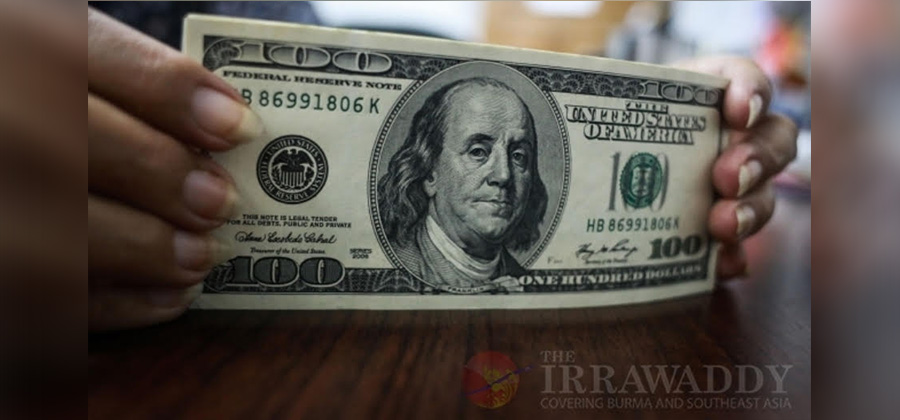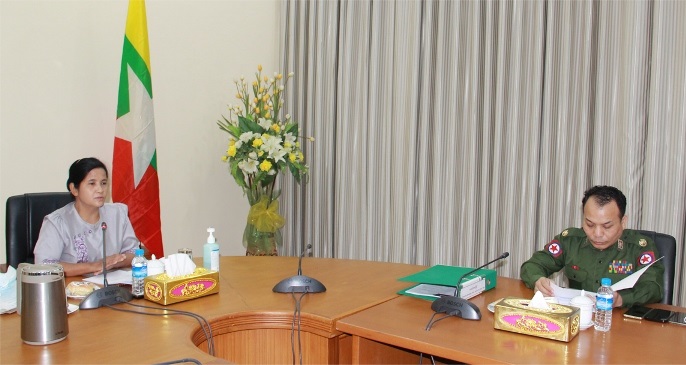Civil service retirement age boosted as ranks thin out
Myanmar’s regime has raised the official retirement age for civil servants to 62 in a bid to shore up its dwindling military manpower, which has been hit by battlefield attrition and desertions since the coup.
In an announcement on March 31, the junta said the change was aimed at “conserving the human resources of the State, supporting the development of the country based on the work experience and expertise of senior civil servants, and promoting skilled civil servants.”
The official retirement age was previously set at 60.
Though the Civil Service Personnel Law does not count police and soldiers as civil servants, junta spokesman Major General Zaw Min Tun said the amendment would also apply to military personnel and police.
Hundreds of junta soldiers and police have been killed and thousands more have deserted as a result of fighting with resistance groups and ethnic armed organizations since the military coup. To mitigate the effects of this, both regime chief Min Aung Hlaing and his deputy Soe Win have visited battalions to shore up morale among military personnel. The regime has also trained and armed pro-junta groups known as Pyu Saw Htee, and enacted a law making it compulsory for law enforcement personnel to fight alongside junta soldiers on the front lines. At the same time, Australia has granted asylum to military defectors from Myanmar, dealing another blow to the regime.
Junta organizes Thingyan Festival; public in no mood
Eager to create an impression of normalcy in Myanmar, the regime is making big plans for what is traditionally the country’s largest annual celebration.
At a regime cabinet meeting on March 30, Min Aung Hlaing said permission had been granted for Thingyan—Myanmar’s traditional New Year festival—to be celebrated in the regions and states, as the COVID-19 pandemic had been brought under control to a certain extent. He asked ministries to organize Thingyan festivities in line with COVID-19 regulations, and observing security precautions.
The announcement was followed by reports in junta-controlled newspapers about how chief ministers were planning to hold Thingyan festivals in their respective regions and states.
Reports have also emerged of local junta authorities soliciting donations from residents in some wards in Yangon, and of junta ministries pressuring businessmen to set up Thingyan pavilions and collecting donations from them.
However, with the country plagued by violence, financial hardship, rising prices and power outages, many Myanmar people are in no mood to celebrate.
Opposition forces have also called for a boycott of Thingyan, which falls on April 13-16.
Forex decree a headache for foreign business

The Singapore, Japan and EU embassies have asked the Myanmar regime to exempt their nationals’ companies from a draconian new foreign-exchange regulation.
On April 3, the Central Bank of Myanmar ordered that foreign exchange earned by locals must be converted into the local currency at the official rate within one working day.
The embassy of Singapore, which is the biggest investor in Myanmar, said “Singaporean companies operating in Myanmar will face serious challenges to their regular operations under the new regulation, and may have difficulty in continuing their business in the country.”
The Japanese Embassy also asked the junta’s Ministry of Foreign Affairs to exempt Japanese companies and governmental organizations from the new directive, citing the countries’ close bilateral relations.
The EU Embassy in Yangon also asked that businesses, international schools, the European Chamber of Commerce and EU-based non-governmental organizations be exempted from the new regulation.
Shooting a slap in the face for regime

The vice-governor of the junta-controlled Central Bank of Myanmar, Daw Than Than Swe, was shot at her house in Yangon on Thursday, becoming the highest-ranking regime official so far to be attacked.
The Yangon military command of the parallel National Unity Government said the attack was the final phase of Operation Pyan Hlwar Aung. The command said Daw Than Than Swe was shot five times on her doorstep.
Confirming the shooting, junta spokesman Major General Zaw Min Tun told media she was admitted to a military hospital with minor injuries. But sources from the Central Bank said she was in critical condition.
The 55-year-old served as a director-general at the bank under the National League for Democracy, and was appointed as one of the bank’s two vice-governors on Feb. 4, 2021, three days after the military seized power by overthrowing the country’s democratically elected government.
The shooting came a few days after the central bank issued a controversial order requiring that all foreign exchange earned by locals be converted to local currency at the official rate within one working day.
In November last year, former navy lieutenant commander U Thein Aung, the chief financial officer of the military-owned telecom operator Mytel, was shot dead outside his home in Yangon.
You may also like these stories:
Myanmar Rohingya Genocide Case Is Legitimate, Gambia Tells UN’s Top Court
Cobra Gold Military Exercise Kicks Off in Thailand Without Myanmar
EU Adds More Myanmar Companies, Regime Officials to Sanctions List

















